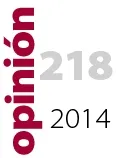France is no longer a normal country

Francis Ghilès
Senior Research Fellow Associate, CIDOB
30 January 2014 / Opinión CIDOB, n.º 218 / E-ISSN 2014-0843
For the world media, François Hollande’s private life offers a feast of articles. Not a day goes by without the international media, most notably the Anglo-Saxon ones indulging in gossip on the matter. The French head of state likes to present himself as a normal man but the trouble is that he presides over a country which is anything but normal. The rise of racism and xenophobia in the land which likes to proclaim itself the cradle of the universal rights of man, the stubbornly high figures of youth unemployment – one quarter of the total – and the radical aversion to taxation, not to mention a deep hostility toward the detested bureaucracy in Brussels is of far greater concern to most French people and their immediate European neighbours. The French harbour deep fears that their nation is in rapid decline.
Although a recent study suggests that only 8% of French people espouse racial inequality, the slide towards intolerance of the other in recent years strikes any visitor. The other can be Arab, Black, Jewish, Roma or the bureaucracy in Brussels. Despite the Dieudonné affair, anti-semitism is the least of it. Last autumn the minister of justice, Christiane Taubira, a black woman who hails from French Guiana was called a “monkey” by a National Front candidate in the forthcoming municipal elections, an insult repeated by a member of the main opposition party Union for a Popular Movement.
Neighbourhoods where poor Arab and Caribbean populations live are looking every year more like American ghettos. Unemployment rates in such areas often affect half of all young people whom the elite and the media seem to think are incapable of integrating into French society. Ethnicist views of society have become mainstream as media celebrities such as Alain Finkielkraut who teaches philosophy at the Ecole Polytechnique expresses his concern, nay his disgust, at the dilution of eternal France. This idea that swarthy barbarians are at the gate is shared by polemical journalists such as Eric Zemmour who bemoan the fate of the “white proletariat” which he fears is helpless before the “ostentatious virility of their black and Arab competitors seducing numerous young white women.” Both are Jewish who seem to have quite forgotten the lessons of modern European history.
France is a country of rising extremes. The extreme right wing National Front is credited with one quarter of the vote by the latest Ifop poll, in the European elections due in May – ahead of the UMP and well ahead of the Socialists. The party argues that were it not for EU “dictates” to successive French governments, “uncontrolled” immigration and rampant globalisation, the country would enjoy full employment and rising living standards. The party encourage a nostalgia and a desire to close the doors to all outside influences which is totally unrealistic. It refuses to acknowledge that those European countries which are in better shape economically than France have had the courage to conduct deep economic, social and educational reforms which France has shied away from for a generation. They cling, as many Frenchmen and women who do not share their racist views to the idea that the French “model” of welfare, education and cuisine is somehow unique in Europe and the wilder world. They would rather forget the rise of China, India and Brazil. They fail to understand that the Trente Glorieuses, the thirty years of fast economic growth and low unemployment which followed the end of the second war are gone for good, never to return. They are in denial afraid of hitting the buffers and, at their most xenophobic, like an animal at bay.
The Socialist government is feeding into these fears. It recently banned a performance by the popular comic Dieudonné M’Bala M’bala who claims not to know “between Jews and Germans who is telling the truth” because it incited racial hatred. The minister of the interior, Manuel Valls, secured legal backing for the ban. Dieudonné, who started his career as a very funny comedian, thrives on controversy. His pronouncements are, without doubt, anti-semitic but turning him into a “victim” was maybe not the best line of defence for a government and a minister who pride themselves on expelling twice as many Roma people in 2013 as the year before. The Roma account for 0.03% of the population, there are a mere 20,000 of them in France. They are insulted and stigmatised in a manner which is way beyond anything that is happening to the French Jewish community. What is one to make of a minister who plays to the National Front tune on the Roma but does not hesitate to resort to the supreme administrative court, the Conseil d’Etat, when fighting a comic. This “competition” of victims can only make matters worse in a country which boasts the largest Jewish and Muslim communities in Europe, let alone millions of Black people. France is no longer a normal country.